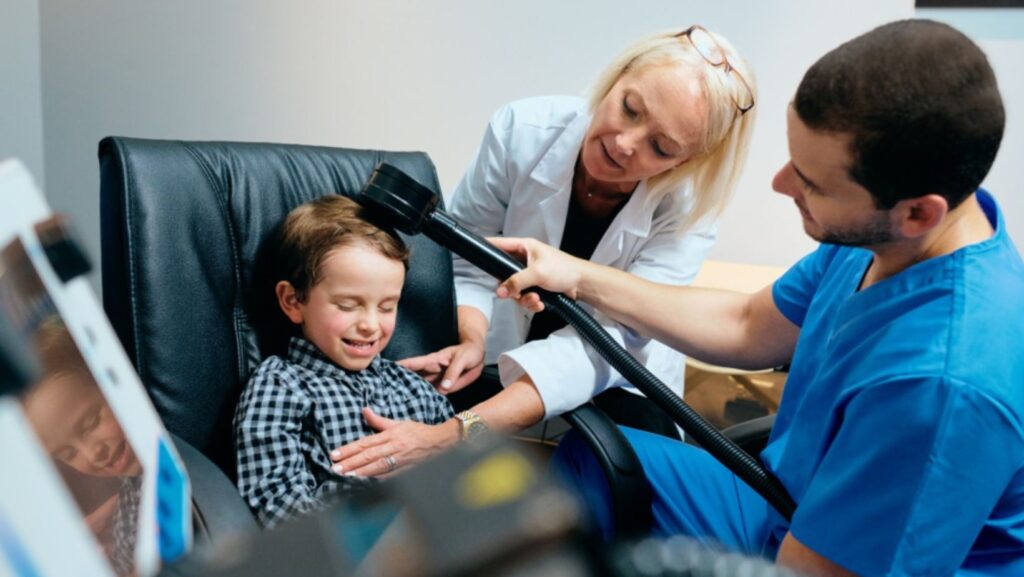Healthcare is about ensuring the wellbeing of people based on general, but also individual health needs. For example, there are people with neurological conditions like spinal cord injury, stroke, and traumatic brain injury.
The chances of such people recovering are largely dependent on their access to quality neurological therapy and neuro-rehabilitation services. By the way, you can read this article for more information on conditions that require these kinds of healthcare services.
Furthermore, these healthcare services might be required by adults, as well as kids for a wide range of reasons. This article discusses more on this subject. So, keep reading to stay informed.
Neurological Therapy for Adults
Healthcare service providers that offer neuro-rehabilitation services and neurological therapy ==============mostly have adults (especially senior citizens) as their clients. This is down to conditions that are more common among people of this age bracket. This includes conditions like:
- MS (Multiple Sclerosis)
- Parkinson Disease
- Stroke
- Spinal Cord Injuries
These are just a few as several other conditions fit in. Regardless of the condition, these healthcare services consist of several key aspects. These key aspects include the following:
Physical Therapy
The focus here is on restoring balance, coordination, and mobility. Specific and regulated exercises are used to accomplish this. The said exercises help improve mobility; especially by strengthening body muscles.
Occupational Therapy
With neurological challenges comes a significant loss of independence, more often than not. This is because the affected individual is unable to do some of the things that were once considered normal and/or even simple tasks. This includes tasks such as cooking, working, and dressing.
As a result, this key aspect focuses on helping the affected individual re-attain the ability to perform these tasks; therefore recovering that sense of independence. By the way, the use of patient-tailored strategies and adaptive equipment is crucial in making this happen.
Cognitive Rehabilitation
This key aspect requires the use of exercises. However, these are mostly mental exercises. Broadly speaking, these exercises are aimed at improving:
- Problem-Solving
- Memory
- Executive Function
- Attention

The objective is to help the patient recover from the adverse mental/cognitive impact of the neurological condition. You can see www.abilitiesrehabilitation.com for more insight on how important effective recovery in this area is for affected adults. By the way, many affected adults have challenges in this regard.
Speech Therapy
Communication challenges are one of the many adverse effects that can set in because of some neurological conditions. This would then result in challenges in areas such as language comprehension, speech articulation, and even display of cognitive-communicative skills. Addressing neurological concerns in this regard is the major aim of this key aspect.
Pediatric Neurological Therapy
Although adults (mostly senior citizens) are more likely to require neuro-rehabilitation services, there is a branch of this healthcare service tailored to meet the needs of kids with neurological challenges.
This is because kids can be susceptible to some neurological conditions for several reasons, ranging from developmental delays/inconsistencies to injuries. In the spirit of helping such kids better develop or recover (as the case may be), pediatric neurological therapy consists of several key aspects, including:
Occupational Therapy
Getting affected kids to reach that state where they are independent enough to perform certain tasks is the objective of this key aspect. Enhancement of hand-eye coordination and development of fine motor skills are also crucial goals of this key aspect.
Physical Therapy
Affected kids are made to perform certain physical exercises. These exercises are aimed at enabling mobility, flexibility, and improving strength.

Furthermore, these exercises are also patient-tailored. This is considering that the patients in question are at a developmental phase; meaning that caution is of the essence with physical exercises.
Speech & Language Therapy
By the way, challenges with the display of communication skills are one of the leading reasons why pediatric neurological services are engaged. This is especially true in cases when the need for these services is not a result of an injury.
As a result, many healthcare service providers that offer pediatric neurological healthcare services have professional speech therapists on their payroll. This key aspect is largely about improving the language comprehension skills and speech of the patient. It is also about helping the affected child seamlessly interact on a social level.
It is safe to say that it is a very broad aspect, consisting of even some fairly known tasks. For instance, a speech therapist qualified to work with children who have neurologically-related speech issues may be able to provide support for managing eating disorders. You can click here for more information on this subject.
Conclusion
There are neurological services tailored to meet the needs of adult and kid patients who require these services as seen here. However, client specialty should be a major deciding factor when choosing healthcare service providers that offer these services.
This is because some service providers offer services better suited for meeting the neuro-rehabilitation needs of adults than kids, and vice versa. However, some options are great for both kinds of patients.
